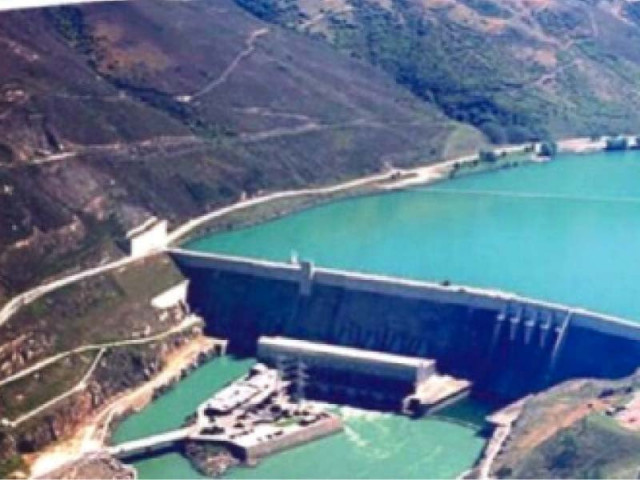US notifies power scheme in Pakistan
Project aims to bring efficiency in power sector, promote green energy

The United States (US) announced on Friday to commence a four-year $23.5 million project in Pakistan to steer efficiency in the power sector.
The project aims to increase the share of green energy in Pakistan’s energy mix, United States Agency for International Development (USAID) Mission Director Julie A Koenen said in a statement.
The US government, through the USAID, is partnering with the Pakistani government to launch a four-year $23.5 million power sector improvement project to address climate change and increase the share of green energy in Pakistan’s energy mix.
Through technical assistance to the government and private sector, the project will also improve the management and operations of power transmission and distribution systems, increasing the financial viability, reliability, and affordability of Pakistan’s power system.
“The US looks forward to advancing the partnership with Pakistan to build a clean, efficient, and reliable electricity generation sector, laying a foundation for sustainable and inclusive growth,” Koenen said at the launching ceremony.
“Through this new initiative, USAID will partner with the government of Pakistan to support the transition to a truly competitive wholesale power market.”
“This will increase private sector participation in an open and transparent manner and support our shared energy reform goals,” she added.
Private Power and Infrastructure Board (PPIB) Managing Director Shah Jahan Mirza praised the USAID for its strong partnership, innovation and sustained cooperation in supporting Pakistan’s transition to clean energy.
He looked forward to continuing the partnership to improve Pakistan’s power sector performance.
The prolonged US-Pakistan partnership has witnessed the construction of various dams and transmission lines in the country besides responding to humanitarian emergencies and combatting shared challenges like the Covid-19 pandemic, climate change and water vulnerabilities.
To expand Pakistan’s energy supply, the US and Pakistan have jointly built three dams – Gomal Zam Dam in South Waziristan, Satpara Dam in Gilgit Baltistan, and Golen Gol Hydropower Project in Chitral (Khyber Pakhtunkhwa) – adding 143 megawatts of electricity to the national grid.
Both countries have rehabilitated the Mangla and Tarbela dams, three thermal power plants and connected more than 860 megawatts of commercially-funded wind and solar projects to the national grid.
The power sector of Pakistan is currently dealing with a number of issues, including rising electricity prices, electricity theft and circular debt.
The previous governments had made all-out efforts to overcome power sector issues but they had been unable to address them.
Power distribution companies are also dealing with a number of issues related to power theft, which has resulted in circular debt.
There are several companies in K-P, Sindh and Balochistan where losses were high and recovery was too low to plague the entire energy chain.
During the previous government of PTI, circular debt had almost swelled to Rs2.5 trillion.
When the PTI government took power in 2018, the PML-N government left the circular debt at Rs1.6 trillion.
To enter into a deal to reduce electricity rates, the PTI government paid independent power producers (IPPs) around Rs200 billion.
Poor governance in the provinces of K-P, Balochistan and Sindh resulted in increased electricity losses and theft, which contributed significantly to the growing circular debt.
The power sector’s inefficiencies also caused problems in the oil and gas sector, which had a circular debt of around Rs1.5 trillion.
The liquefied natural gas (LNG) was another fuel that led to piling up circular debt in the oil and gas sectors.
At present, Pakistan State Oil (PSO) was to receive Rs272 billion from Sui Northern Gas Pipelines Limited (SNGPL) on account of non-payment of dues against LNG supply.
The previous government of PTI diverted all LNG to domestic consumers during the winter season to overcome the gas crisis. This trapped the energy companies in LNG circular debt.
SNGPL claimed that it had to receive over Rs100 billion from domestic consumers. However, recovery of gas bills has been an issue due to lack of legal framework in place.
The PTI government passed a bill related to weighted average cost of gas (Wacog) from parliament. But that bill had been challenged in court and the Sindh government had also become a party in that case.
The Sindh government claimed that it would compromise their gas allocation quota.
Published in The Express Tribune, April 23rd, 2022.
Like Business on Facebook, follow @TribuneBiz on Twitter to stay informed and join in the conversation.



















COMMENTS
Comments are moderated and generally will be posted if they are on-topic and not abusive.
For more information, please see our Comments FAQ